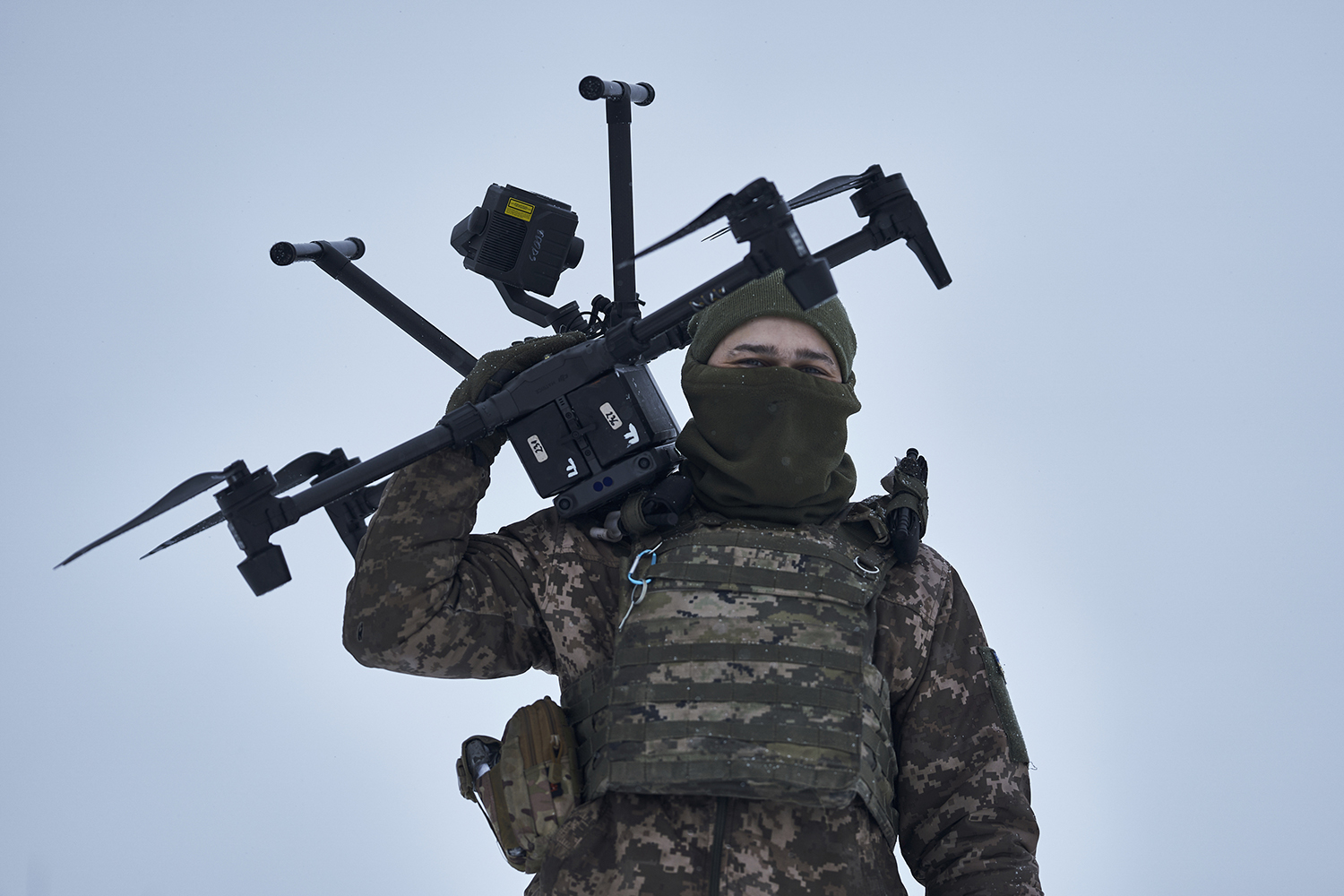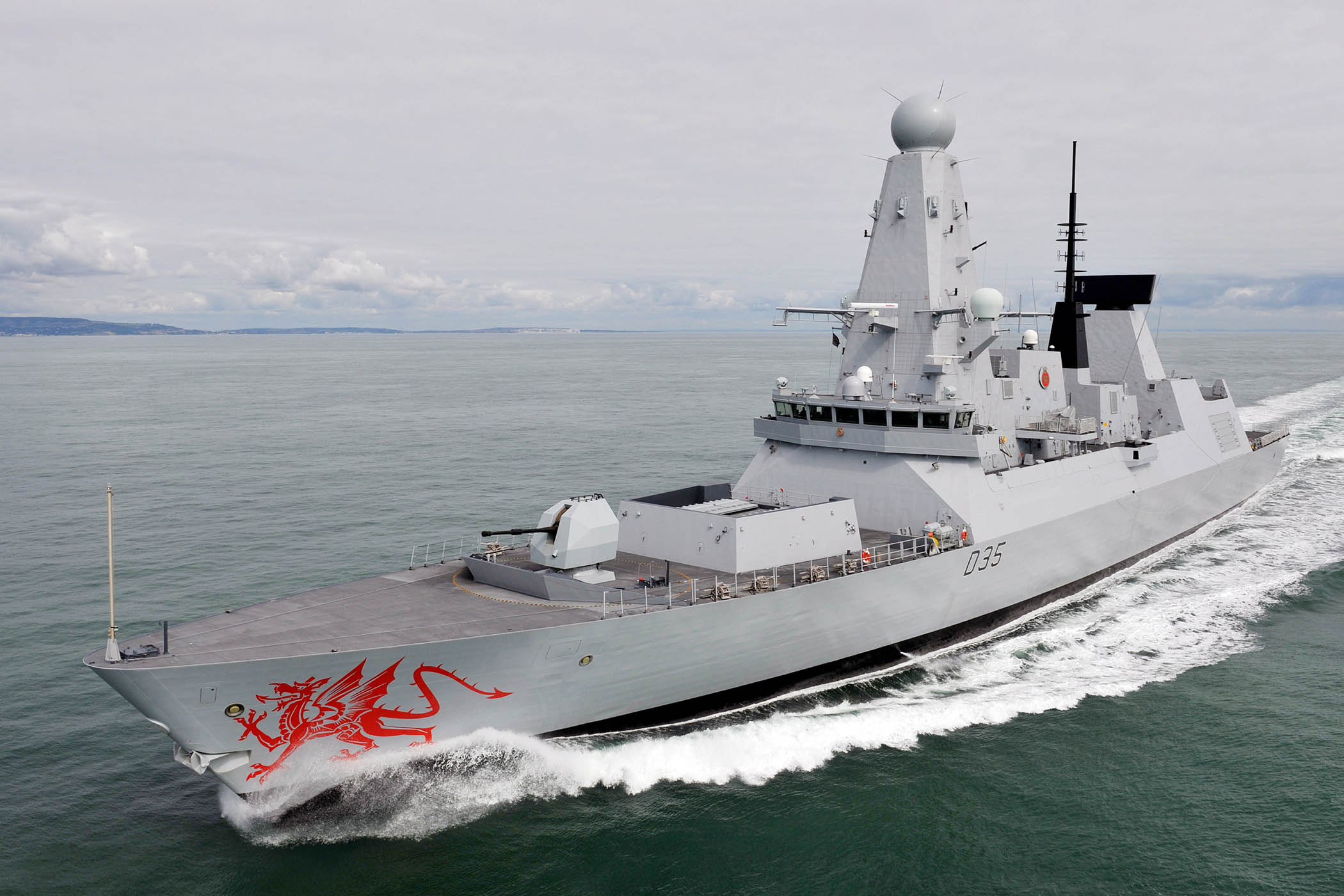Ukraine’s battlefields are shifting. Three years into the war, tankers and trenches are being replaced by autonomous weapons, built by startups and battle-tested on the frontlines. And, increasingly, they’re backed by private money.
According to The Observer’s analysis of data from Dealroom and Crunchbase, European defence companies saw a 650% increase in private investment between 2022 and 2024. The analysis also found the majority of private defence funding in Europe comes from the US. American venture capital (VC) and private equity funds have invested nearly three times as much as funds from Germany and Switzerland. Many investors say all funding is welcome. They say the war in Ukraine highlighted the need for European countries Europe to invest in defence. But others argue that the injection of US private capital might give the US outsized influence over the European defence sector.
Since the second world war, cutting-edge defence technologies have mostly been backed by public investment. “That has now pivoted. We’re now seeing AI materials [and] biotech coming out of the private sector,” says John Ridge, the chief adoption officer at the Nato Innovation Fund (NIF), a venture capital firm backed by 24 NATO allies. NIF is primarily financed by public money from member states, but also seeks to leverage private investment in the defence and security sectors.
Rather than investing heavily in R&D, governments can “leverage the massive investments that are being done in the private sector – by venture in particular – and play them back into the national security sector”, says Ridge.
Among NIF's portfolio is ARX Robotics, which builds unmanned ground vehicles and is partnering with the British military to expand, upgrade and digitise its existing fleets – including by making existing vehicles robotic or autonomous. ARX last month announced a €31m financing round.
Private sector backing has already taken hold in the US. The market value of Palantir, a software company specialising in defence, is more than that of the traditional military behemoths Lockheed Martin, Northrop Grumman and General Dynamics combined. Alongside the privately-backed Anduril and SpaceX,Palantir is a top pick to develop Donald Trump’s “Golden Dome”, a missile defence system inspired by Israel’s Iron Dome.
Elke Schwarz, an academic specialising in autonomous warfare, says military investment was often taboo for European private equity companies, many of which had ESG mandates that barred military investment. “That narrative has changed in the last year,” she says.
Schwarz says the lack of transparency around VC funding can create risk. Peter Thiel, a US billionaire, invested millions in Quantum Systems, a German drone company. While Thiel is German-born, he is also an ideologue who has advocated for US isolationism. “There’s a tension there,” says Schwarz. “If there is a clear political agenda and the geopolitical wind changes quite sharply, the question is what happens then?”
She has long been concerned with “ the structural implications of profit making from warfare”.
She says that having publicly traded companies that are beholden to their investors can make wars deadlier, because when companies stand to profit from war, they have little incentive to see it end.
Newsletters
Choose the newsletters you want to receive
View more
For information about how The Observer protects your data, read our Privacy Policy
Venture capital funding ups the stakes, given that it is “high risk” capital. “When you read venture capital literature, it is about getting a foot in the door, getting contracts, getting repeated seed funding,” she says.
That can lead companies to “overpromise” about their technology. Schwarz points to Helsing, a German startup valued at €5bn, whose valuation quintupled in 2023 after Russia’s invasion of Ukraine. Its drones are used heavily on the frontlines, but last month Bloomberg reported that soldiers found the software “glitchy”.
Privately backed startups can work alongside industry, giving them “ the ability to iterate [their technologies] at speed as the threat changes or as a new technology comes along, rather than creating some monolithic thing which is then often irrelevant at the time it’s deployed”, says Ridge.
Schwarz would like to move towards “ an ecosystem by which you have the opportunity to iterate fast without the venture capital valorisation of the company being at the core”.She praises NIF and Nato’s Diana fund, an accelerator, which safeguard accountability and transparency. “The venture capital sector has been involved in defence for about a decade, maybe less,” says Schwarz. “Has the globe become less problematic? No. Has it become more secure? No. Has it become more insecure? Absolutely. So I’m not laying that at the doorstep of the capital sector, but it isn’t necessarily helping us.”
Data analysis by Joe White
Photography by AP Photo/Libkos



